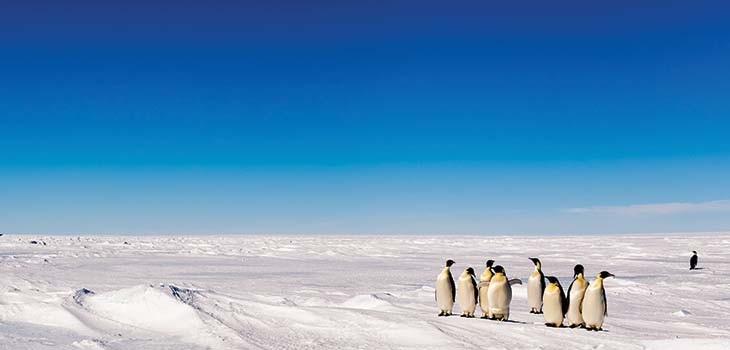
Below 60 degrees latitude lies the immense continent of Antarctica. It covers almost one-tenth of the Earth’s surface and supports the greatest mass of ice in the world. Its isolation, the stormy nature of the intervening seas and, above all, Antarctica’s extreme climate, explain why it has been difficult to reach and explore until relatively modern times. It has also posed a challenge to traditional international law because its unique features make it impossible to apply the usual methods for establishing (and perfecting) claims of territorial sovereignty.
Antarctica currently has no permanent population and, therefore, it has no citizenship nor government. Personnel present in Antarctica at any time are almost always citizens or nationals of some sovereignty outside Antarctica, as there is no Antarctic sovereignty.
Sovereignty problems
Historically, if newly-found lands were res nullius (ie belonging to no one), then a discoverer could claim them in the name of their sovereign. Discovery alone, however, produced only an inchoate or imperfect title, which had to be perfected











